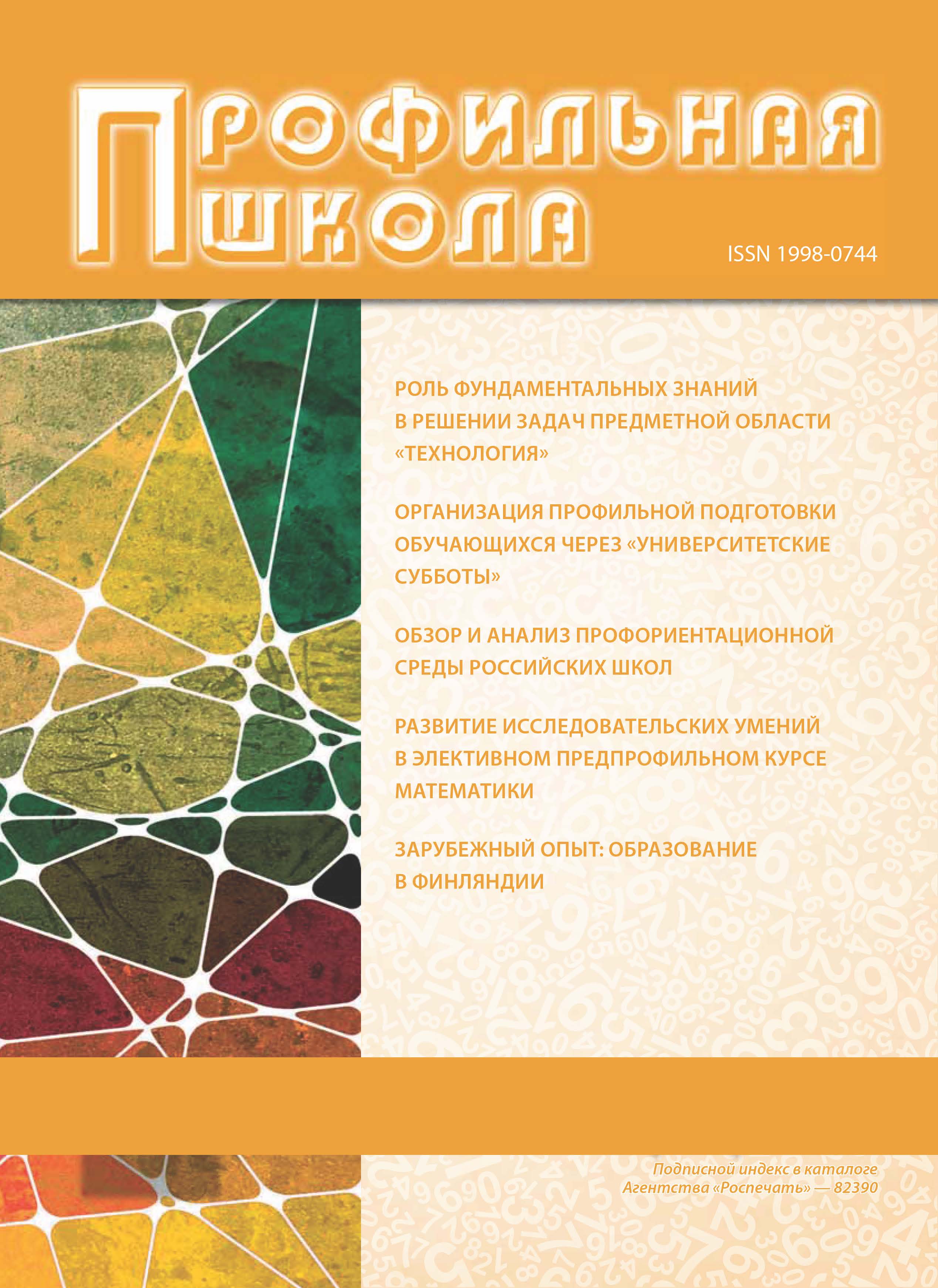The aim of the research was to develop and implement a teachers training master degree program with active integration of soft skills at all the stages to form students’ system and critical thinking, project management skills, teamwork and leadership, communication and cross-cultural interaction skills. To solve these problems, the program included specialized practice-orientated courses based on the principles of pedagogical ergonomics and the latest technologies (ball-rating system, workshop, case study, “agile” principle, pedagogical situations’ modeling and others). The research resulted is a unique, effective and validated program and a set of training materials to develop universal competencies of master degree students.
generic competencies, soft skills, vocational education, educational program, master's degree program, teachers’ training, pedagogical education
1. Ob obrazovanii v Rossijskoj Federacii [On education in the Russian Federation]. Federal'nyj zakon ot 29 dekabrja 2012 g. № 273-FZ [Federal Law of December 29, 2012 No. 273-FZ]. Available at: http://base.garant.ru/70291362/ (accessed 04 January 2021).
2. Federal'nyj gosudarstvennyj obrazovatel'nyj standart vysshego obrazovanija - magistratura po napravleniju podgotovki - 44.04.01 pedagogicheskoe obrazovanie: Prikaz Minobrnauki Rossii ot 22.02.2018 N 126 [Federal State Educational Standard of Higher Education - Master's Degree in Preparation - 44.04.01 Pedagogical Education: Order of the Ministry of Education and Science of Russia dated 22.02.2018 N 126]. Available at: https://www.garant.ru/products/ipo/prime/doc/71797874/ (accessed 04 January 2021).
3. Achcaoucaou F., Guitart-Tarrés L., Miravitlles-Matamoros P., Núñez-Carballosa A., Mercé Bernardo &Bikfalvi A., (2014). Competence Assessment in Higher Education: A Dynamic Approach. Human Factors and Ergonomics in Manufacturing & Service Industries, 24: 4, 454-467.
4. Attakorn, K., Tayut, T., Pisitthawat, K., & Kanokorn, S. (2014). Soft skills of new teachers in the secondary schools of Khon Kaen Secondary Educational Service Area 25, Thailand. Procedia-Social and Behavioral Sciences, 112, 1010-1013.
5. Bartels, S. M., & Mortenson, B. P. (2006). Enhancing adherence to a problem-solving model for middle-school pre-referral teams: A performance feedback and checklist approach. Journal of Applied School Psychology, 22(1), 109-123.
6. Delise, L. A., Allen Gorman, C., Brooks, A. M., Rentsch, J. R., & Steele-Johnson, D. (2010). The effects of team training on team outcomes: A meta-analysis. Performance Improvement Quarterly, 22(4), 53-80.
7. McMullan M., Endacott R., Gray M. A., Jasper M., Miller C. M. L., Scholes J., et al., (2002). Portfolios and assessment of competence: a review of the literature. Journal of Advanced Nursing, 41: 3, 283-294.
8. Mulder M., &Winterton J., (2017). Introduction. In M. Mulder (Ed.), Competence-based Vocational and Professional Education, Technical and Vocational Education and Training: Issues, Concerns and Prospects (pp. 1-43 ). Switzerland: Springer International Publishing.
9. Rutledge L., LeMire S., Hawks M. &Mowdood A., (2016) Competency-Based Talent Management: Three Perspectives in an Academic Library. Journal of Library Administration, 56:3, 1 -27
10. States, J., Detrich, R. & Keyworth, R. (2018). Overview of Teacher Soft Skills. Oakland, CA: The Wing Institute. https://www.winginstitute.org/teacher-compentencies-soft-skills. (accessed 04 January 2021).
11. States, J., Detrich, R. & Keywroth, R. (2012). Effective Teachers Make a Difference. In Education at the Crossroads: The State of Teacher Preparation (Vol. 2, pp. 1-46). Oakland, CA: The Wing Institute.
12. Wilson, D., & Conyers, M. (2017). 4 proven strategies for teaching empathy. Edutopia. Retrieved from https://www.edutopia.org/article/4-proven-strategies-teaching-empathy-donna-wilson-marcus-conyers (accessed 04 January 2021).






